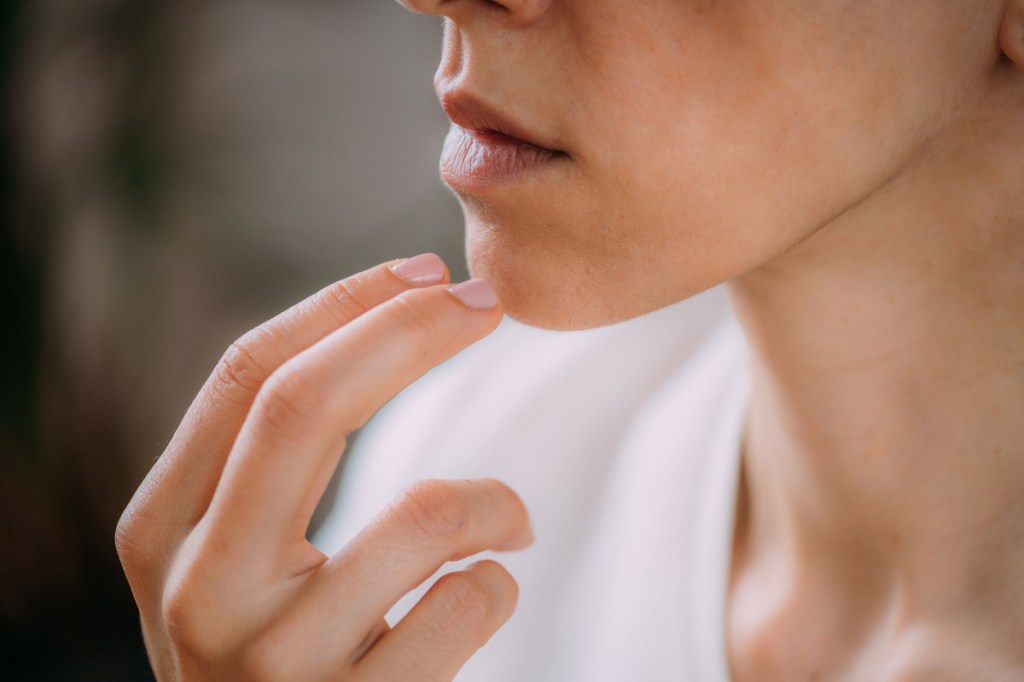You shouldn’t do it. It’s a nervous tic. You’re bringing oils from the world and setting them directly on your face, which can cause pimples, growths, and all sorts of facial nastiness. But you can’t help it.
According to a recent study, your constant unconscious face touching, especially in your infamously troublesome T-Zone, is part of a complex distress signal sent out by your brain.
In a paper presented at the 2025 International Conference on Affective Computing and Intelligent Interaction, researchers from the University of Houston and Virginia Tech report that they filmed ten researchers for four consecutive days.

Why We Touch Our Faces When We’re Stressed
Using AI-powered video analysis and thermal imaging, they tracked over 600,000 seconds of human behavior to find a pattern. They noticed that when people reached for their chins, cheeks, and nose areas, it’s likely because we’re experiencing stress.
As far as expressions of stress and anxiety go, face touching flies under the radar. The study found that the specific combination of touching your chin, cheek, and nose simultaneously was closely linked to stress spikes measured by perinasal sweating, aka nose sweat.
We’re not the only species that does this. Primates also have been known to give themselves some facial touches when stressed. There is even research to suggest that trying to stop habitual face touching affects our memory and alters brain activity, making it less of a nervous tic and more of an ingrained stress management strategy.
The AI identified these micro-gestures with 94 percent accuracy and even caught weirdly consistent patterns, like how most people touch the left side of their face. This is likely because it’s the non-dominant hand, which is sometimes occupied with more important tasks.
Researchers also found that people spent two-thirds of their day doing cognitively demanding tasks like reading and writing, and the stress response and the face-touching data aligned pretty well.
We do more than touch our faces as a stress response during work. We feel our phones, and we walk away from our desks to take a quick breather. All the while, researchers found that facial expressions were basically useless in predicting whether we felt stressed or not.
And that these little behavioral tells are much clearer indicators of stress.
The post This Is Why We Touch Our Faces a Lot When We’re Stressed appeared first on VICE.




